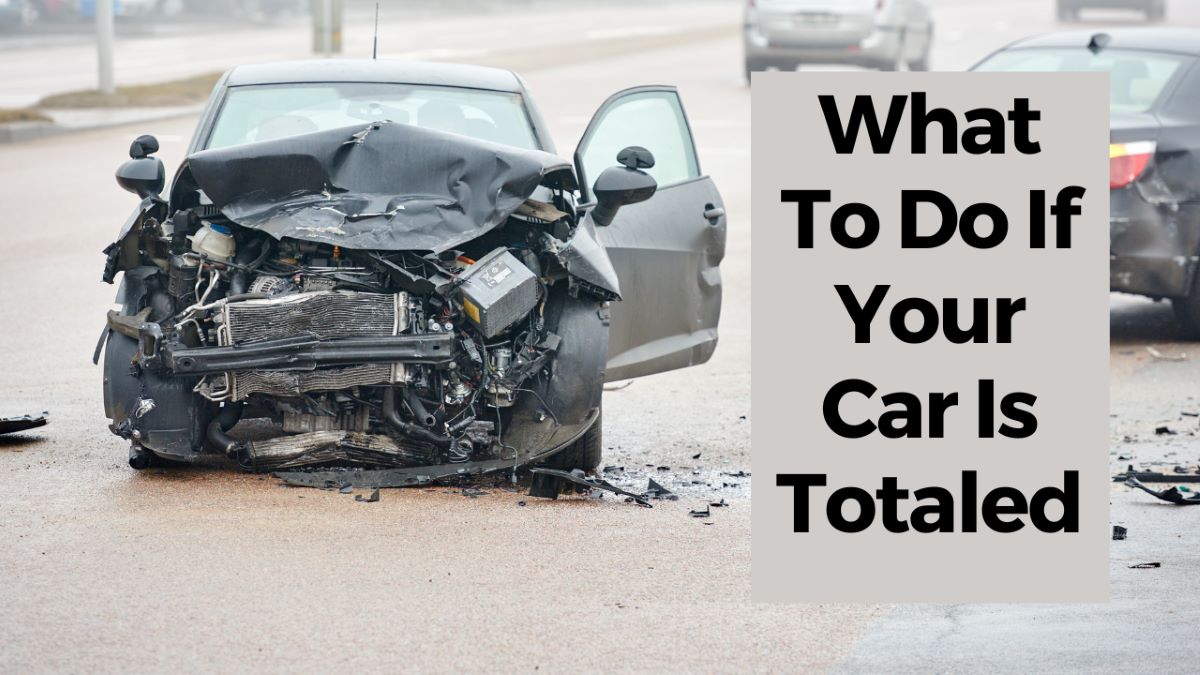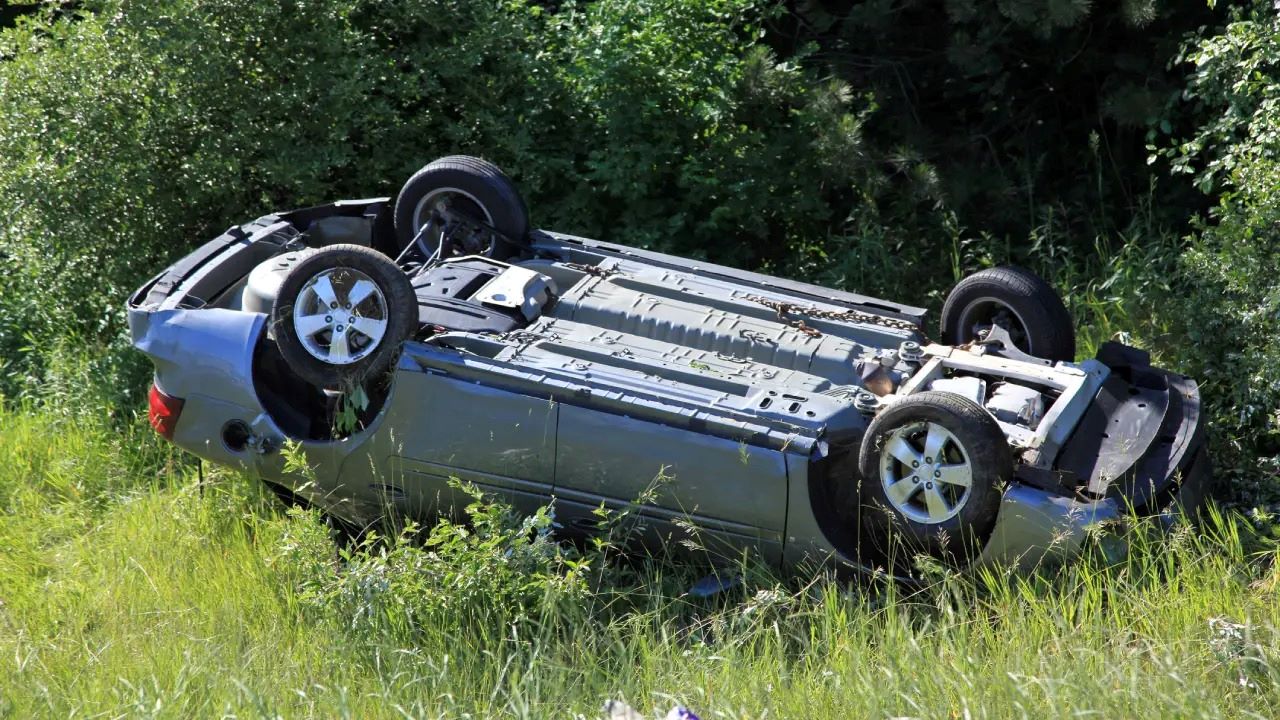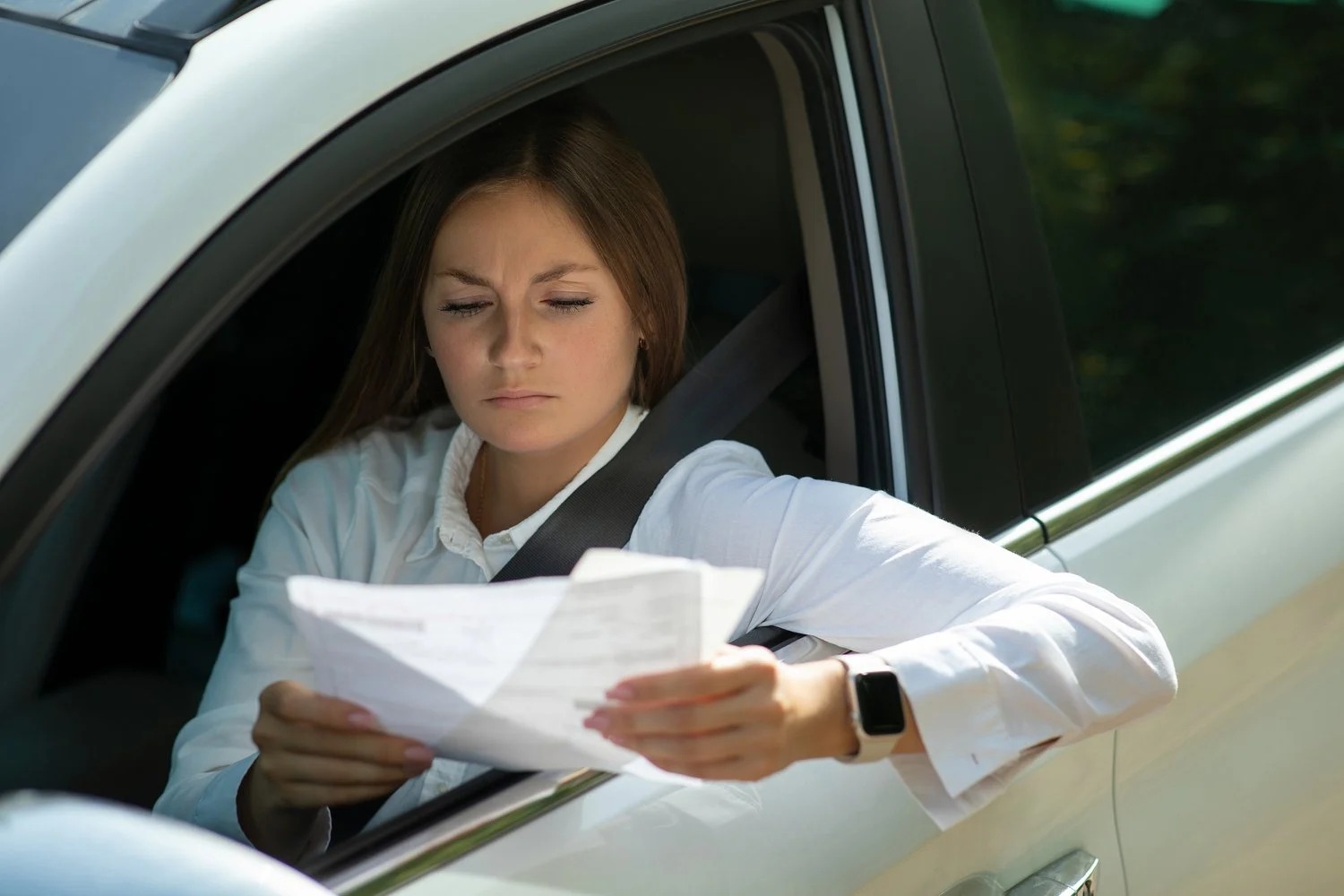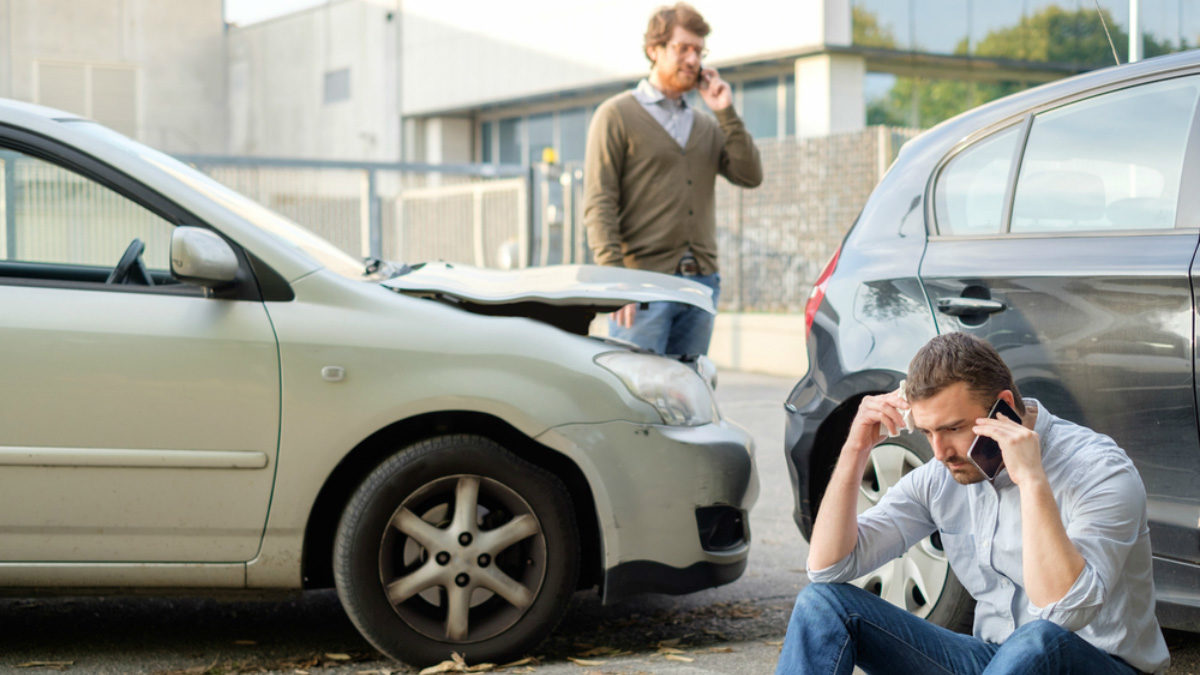Home>Finance>What Happens If You Total A Financed Car Without Insurance?
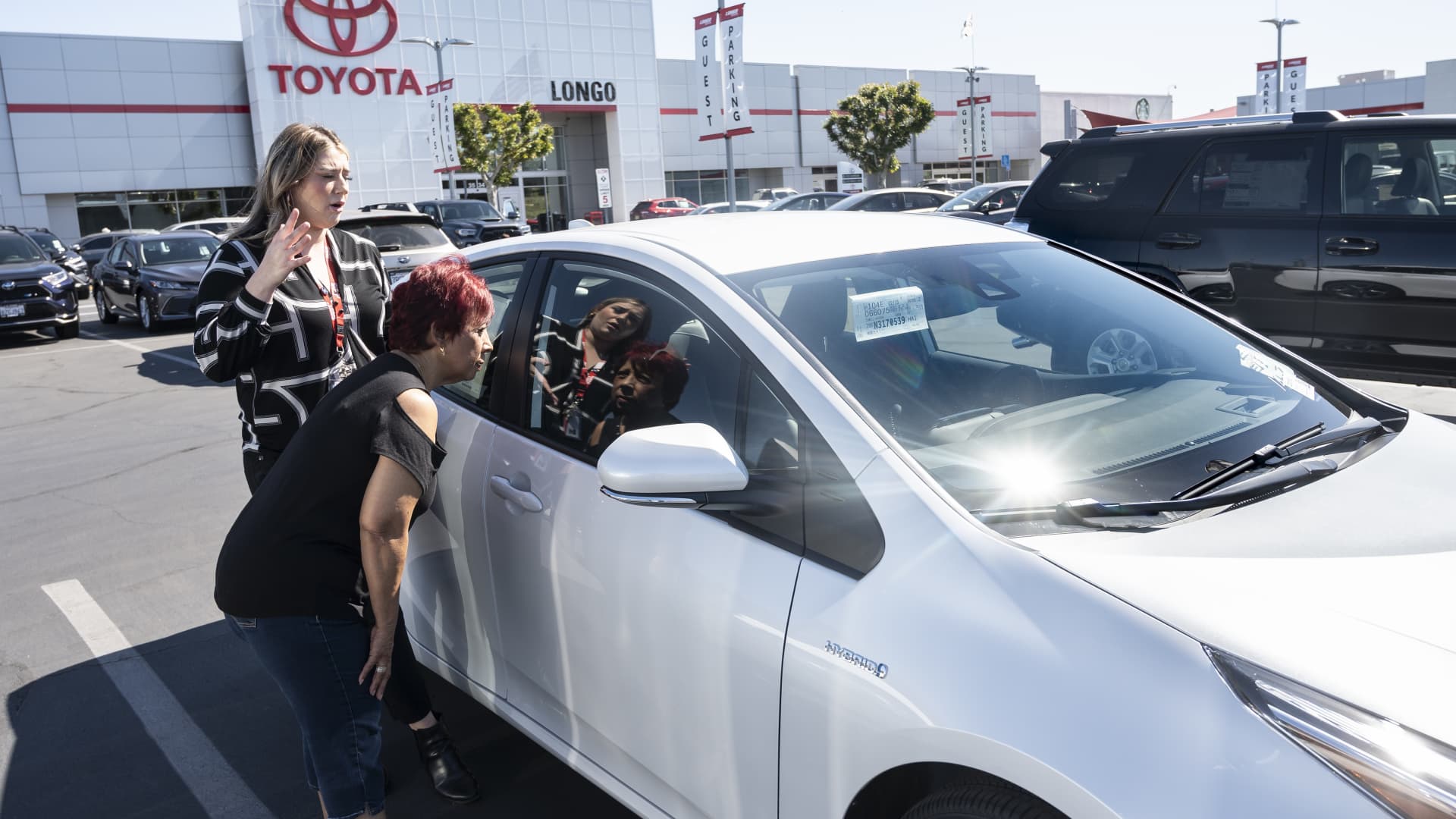

Finance
What Happens If You Total A Financed Car Without Insurance?
Published: November 10, 2023
If you total a financed car without insurance, you may be responsible for paying off the remaining finance balance out of pocket. Protect your investment by securing proper insurance coverage.
(Many of the links in this article redirect to a specific reviewed product. Your purchase of these products through affiliate links helps to generate commission for LiveWell, at no extra cost. Learn more)
Table of Contents
Introduction
When it comes to purchasing a car, many people choose to finance it through a loan. This option allows them to spread out the cost of the vehicle over a period of time, making it more affordable. However, with car ownership comes the responsibility of ensuring adequate insurance coverage.
In the unfortunate event of a car accident, having the right insurance coverage can make a significant difference in the aftermath. But what happens if you total a financed car without insurance? This is a question that many people may not fully understand or consider until it’s too late.
In this article, we will explore the implications of totaling a financed car without insurance. We will delve into the financial and legal consequences that can arise from this situation. By understanding the importance of insurance and the potential impact of driving without it, you can make informed decisions regarding your car ownership.
So, let’s explore what happens if you find yourself in a situation where you’ve totaled a financed car without insurance.
Understanding Total Loss
Before diving into the consequences of totaling a financed car without insurance, it’s important to understand what is meant by a “total loss.” When a car is deemed a total loss, it means that the cost of repairs exceeds a certain threshold, typically a percentage of the car’s actual cash value.
Insurance companies use a formula to determine whether a car is a total loss, considering factors such as the car’s age, condition, and the estimated cost of repairs. If the repair costs exceed the predetermined threshold, the insurance company may choose to declare the car a total loss.
When a car is totaled, it means that the damage is significant enough that it would not be economically feasible to repair it. In such cases, the insurance company typically offers the policyholder a cash settlement based on the car’s actual cash value at the time of the accident.
The process of determining whether a car is a total loss can vary between insurance companies and can be influenced by state laws. However, regardless of the specific details, the bottom line is that a total loss designation often leads to the payout of a cash settlement rather than the repair of the vehicle.
Now that we have a basic understanding of what constitutes a total loss, let’s explore the implications of totaling a financed car without insurance.
Financing a Car
Financing a car has become a popular option for individuals who want to spread out the cost of a vehicle over a specified period of time. When you finance a car, you essentially take out a loan to cover the purchase price. This loan is typically obtained from a bank, credit union, or financing company.
There are several advantages to financing a car. Firstly, it allows you to drive a vehicle that you may not be able to afford to pay for upfront. Instead, you make monthly payments over the course of the loan term. Additionally, financing can help establish or improve your credit score if you make timely payments.
When you finance a car, you become the owner of the vehicle, but the lender has a lien on it until the loan is fully paid off. This means that the lender has a legal claim on the car as collateral. If you fail to make payments, the lender has the right to repossess the vehicle to recoup their losses.
It’s important to note that when you finance a car, the lender usually requires you to have comprehensive and collision insurance coverage to protect their investment. This requirement is put in place to ensure that the vehicle is adequately protected in case of any damage or loss.
Now that we understand the basics of financing a car, let’s explore why having insurance is crucial when you have a financed vehicle.
Importance of Insurance
Insurance plays a vital role in protecting you, your vehicle, and your finances in the event of an accident or unforeseen circumstances. When it comes to owning a financed car, having the right insurance coverage is not just a suggestion – it’s a requirement.
Comprehensive and collision insurance are two essential types of coverage for a financed car. Comprehensive insurance covers damage to your vehicle caused by non-collision incidents such as theft, vandalism, or natural disasters. Collision insurance covers damages resulting from collisions with other vehicles or objects, regardless of fault.
Having comprehensive and collision insurance provides you with financial protection in case of accidents, theft, or other covered incidents. It ensures that if your financed car is damaged or totaled, the insurance company will help cover the repair costs or provide a cash settlement based on the car’s actual cash value.
Furthermore, insurance protects you from potential liability if you cause an accident that results in injuries or damages to others. Liability insurance covers the cost of injuries and property damage to third parties, preventing you from having to pay out of pocket for medical bills, legal fees, or property repair expenses.
Without insurance, you are exposed to significant financial risks. In the event of an accident or total loss of your financed car, you would be responsible for covering the repair or replacement costs entirely out of pocket. This can be a substantial burden and potentially lead to financial hardship.
In addition to the financial benefits, having insurance provides peace of mind while on the road. It allows you to drive with confidence, knowing that you are protected from potential financial and legal repercussions that may arise from an accident or other unfortunate events.
Now that we understand the importance of insurance, let’s explore the consequences of driving without it.
Consequences of Driving Without Insurance
Driving without insurance is not only risky but also illegal in most jurisdictions. The consequences of driving without insurance can be severe and may have long-lasting impacts on your finances and driving record.
1. Financial Loss: If you’re involved in an accident without insurance, you’ll be personally responsible for covering all the damages and medical expenses for yourself and others involved. This can result in significant financial strain and potential lawsuits if you are unable to pay for the damages.
2. Legal Penalties: Driving without insurance is a violation of the law, and the penalties can vary depending on your jurisdiction. Common consequences include fines, license suspension, and even potential jail time. Additionally, having a driving record of operating without insurance can lead to higher insurance premiums in the future.
3. Limited Options for Compensation: Without insurance, you won’t have access to the benefits and protections that insurance coverage provides. This means that if you’re injured in an accident caused by another driver, you may face challenges in receiving compensation for medical expenses, lost wages, and other damages.
4. Difficulty Obtaining Insurance in the Future: Driving without insurance can make it more challenging to obtain coverage in the future. Insurance companies consider uninsured drivers to be higher risk, and you may be subject to higher premiums or even denied coverage altogether.
5. Limited Legal Recourse: If you’re involved in an accident with an uninsured driver, your options for legal recourse may be limited. While you can pursue a lawsuit against an uninsured driver, if they lack the financial resources to pay for damages, you may struggle to recover compensation.
It’s essential to understand that driving without insurance not only puts you and your finances at risk but also jeopardizes the well-being of others on the road. It’s a responsibility that should not be taken lightly, as the consequences can have far-reaching negative impacts.
Now let’s explore what happens if you total a financed car without insurance.
Totaling a Financed Car without Insurance
If you total a financed car without insurance, the consequences can be particularly challenging to navigate. When a financed car is totaled, it can leave you in a difficult situation both financially and legally.
1. Financial Responsibilities: When you total a financed car without insurance, you are still responsible for paying off the remaining balance of the loan. This means that you will need to continue making loan payments even though the car is no longer usable or repairable.
2. Lack of Reimbursement: Since you don’t have insurance coverage, there will be no insurance company to compensate you for the loss of your vehicle. This can result in a significant financial burden, as you may need to find alternative transportation while continuing to fulfill the loan obligations.
3. Negative Equity: In many cases, a financed car might have negative equity, meaning that the car’s value is less than the amount still owed on the loan. If you total the car without insurance, the insurance company would have covered the actual cash value at the time of the accident. Without insurance, you would have to cover the remaining balance out of pocket.
4. Limited Options for Replacement: Without insurance funds to help with the purchase of a new vehicle, you may face challenges in finding financing for a replacement car. Lenders may be hesitant to approve a new loan if you have a history of not having insurance or defaulting on a previous loan.
5. Potential Legal Consequences: Driving without insurance is illegal in most jurisdictions. If you’re involved in an accident without insurance, you may face legal repercussions, including fines, license suspension, and potential lawsuits from other parties involved.
It’s crucial to understand that totaling a financed car without insurance can have far-reaching consequences that go beyond losing your vehicle. It can impact your finances, credit score, and legal standing.
Next, let’s explore how to deal with the lender in the aftermath of totaling a financed car without insurance.
Financial Responsibilities
When you total a financed car without insurance, you are still financially responsible for the remaining balance of the loan. This means that despite the loss of the vehicle, you will need to continue making loan payments to the lender.
The first step is to contact your lender and inform them about the situation. They will likely require documentation such as an accident report and any other relevant information. It’s important to be proactive in communicating with your lender to discuss your options and find a solution.
In some cases, the lender may work with you to modify the loan arrangement. They may offer options such as extending the term of the loan, reducing the monthly payments, or finding alternative repayment plans. It’s in the best interest of the lender to work with you, as they want to recover as much of the loan amount as possible.
However, it’s important to note that these arrangements may vary depending on the policies of the lender and your individual circumstances. It’s crucial to read and understand the terms and conditions of your loan agreement to determine your rights and obligations.
Keep in mind that failure to continue making loan payments can have serious consequences. It can lead to late fees, damage to your credit score, and potentially repossession of other assets if the lender decides to take legal action to recover the outstanding loan amount.
Additionally, if the insurance company deemed the car a total loss, the settlement amount would typically be applied to the outstanding loan balance. Without insurance, you will need to find a way to cover this amount out of pocket.
It’s recommended to seek professional advice from a financial advisor or credit counselor who can guide you through the process and help you explore potential alternatives to manage the financial responsibilities associated with totaling a financed car without insurance.
Now let’s explore the potential legal consequences that can arise from this situation.
Legal Consequences
When you total a financed car without insurance, you not only face financial responsibilities but also potentially legal consequences. It’s essential to understand the legal implications of driving without insurance and the potential repercussions that may follow.
1. Violation of the Law: Driving without insurance is illegal in most jurisdictions. If you’re caught driving without insurance, you can face penalties such as fines, license suspension, and even potential jail time depending on the severity of the offense and your jurisdiction’s laws.
2. Increased Insurance Costs: If you’re caught driving without insurance, it can have long-lasting impacts on your ability to obtain affordable insurance coverage in the future. Insurance companies consider uninsured drivers as high-risk, which can lead to higher premiums or denial of coverage altogether.
3. Limited Legal Recourse: If you’re involved in an accident with an uninsured driver, you may face challenges in seeking legal recourse. Without insurance, you may struggle to cover the cost of damages to the other party involved. This can lead to potential lawsuits, judgments, wage garnishments, or even the seizure of personal assets to satisfy the outstanding debts.
4. Increased Scrutiny: Driving without insurance can also bring additional scrutiny from law enforcement officers. They may be more likely to pull you over and inspect your vehicle, leading to potential citations or fines for other violations that may be discovered during the inspection.
It’s important to understand that the legal consequences of driving without insurance can vary depending on your jurisdiction and the specific circumstances of the incident. Consulting with a legal professional who specializes in insurance and traffic laws can provide you with guidance specific to your situation.
Now let’s explore how to navigate the situation with your lender after totaling a financed car without insurance.
Dealing with the Lender
After totaling a financed car without insurance, it’s crucial to communicate with your lender and discuss your situation with them. Dealing with the lender in an open and proactive manner can help you explore potential options and find a solution that works for both parties involved.
The first step is to contact your lender as soon as possible and inform them about the accident and the fact that your car has been totaled. Provide them with any relevant documentation, such as the accident report or any other evidence that supports your claim.
Explain your situation honestly and express your willingness to fulfill your financial obligations. Ask your lender if they have any specific procedures or requirements in place for such situations. Some lenders may have specific processes or insurance requirements that you need to follow.
During the conversation, discuss possible solutions with your lender. They may be willing to work with you to modify the loan agreement, extend the term, or adjust the payment schedule to accommodate your new financial circumstances. Lenders are often motivated to find a mutually beneficial solution, as it helps them recover the outstanding loan amount.
While the specific arrangements may vary depending on the lender and your individual circumstances, it’s important to carefully review and understand any modifications or agreements presented to you. Ensure that you are comfortable with the terms and conditions before committing to any new arrangements.
If you’re experiencing difficulty communicating with your lender or reaching a resolution, you may want to consider seeking professional advice from a financial advisor or credit counselor. They can provide guidance and support throughout the negotiation process and help you explore other potential options to manage your financial responsibilities.
Remember that timely and open communication with your lender is key to finding a solution that can alleviate the financial burden of totaling a financed car without insurance.
Now let’s conclude the article.
Conclusion
Totaling a financed car without insurance can have significant financial and legal consequences. It highlights the importance of having adequate insurance coverage to protect yourself, your vehicle, and your finances. Driving without insurance not only puts you at risk but also jeopardizes the well-being of others on the road.
Understanding the implications of totaling a financed car without insurance is crucial. Financially, you will still be responsible for paying off the remaining balance of the loan, even if the car is no longer usable. Additionally, you won’t receive any insurance reimbursement, which can create a substantial financial burden.
Legally, driving without insurance is illegal in most jurisdictions and can lead to fines, license suspension, and potential lawsuits. It can also make it more challenging to obtain affordable insurance coverage in the future and limit your legal recourse in the event of an accident with an uninsured driver.
When facing the situation of totaling a financed car without insurance, it’s important to communicate with your lender. Discuss the incident, provide necessary documentation, and explore options for modifying the loan arrangement to accommodate your new financial circumstances.
Seeking professional advice from a financial advisor or credit counselor can provide valuable guidance throughout the process. They can help you navigate the negotiation with your lender and explore other potential solutions to manage your financial responsibilities.
In conclusion, it’s crucial to prioritize insurance coverage and ensure its adequacy when owning a financed car. Protect yourself and others on the road by driving responsibly and adhering to the legal requirements of insurance. Being proactive in handling the situation can help mitigate the financial and legal consequences of totaling a financed car without insurance.
Remember, insurance is not just a financial safeguard; it’s a legal obligation and a responsible choice that can provide you with peace of mind and financial security on your journey behind the wheel.
